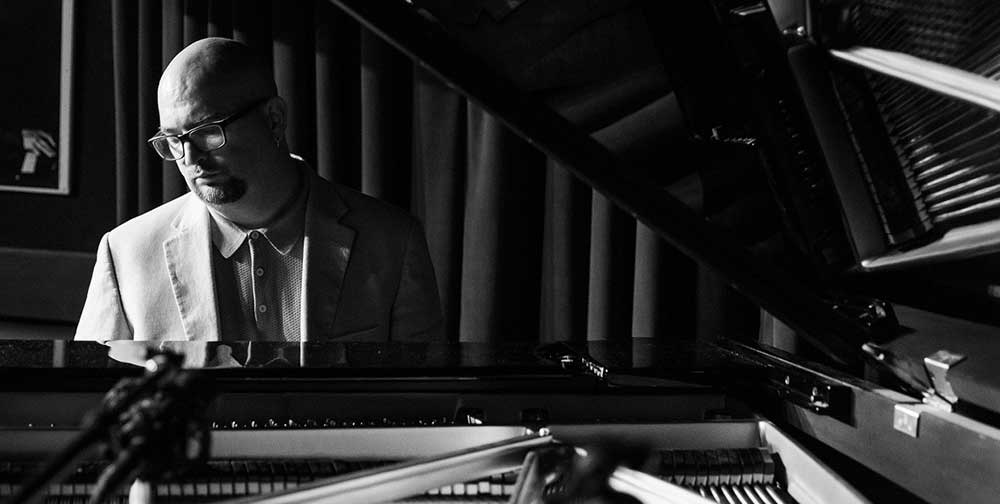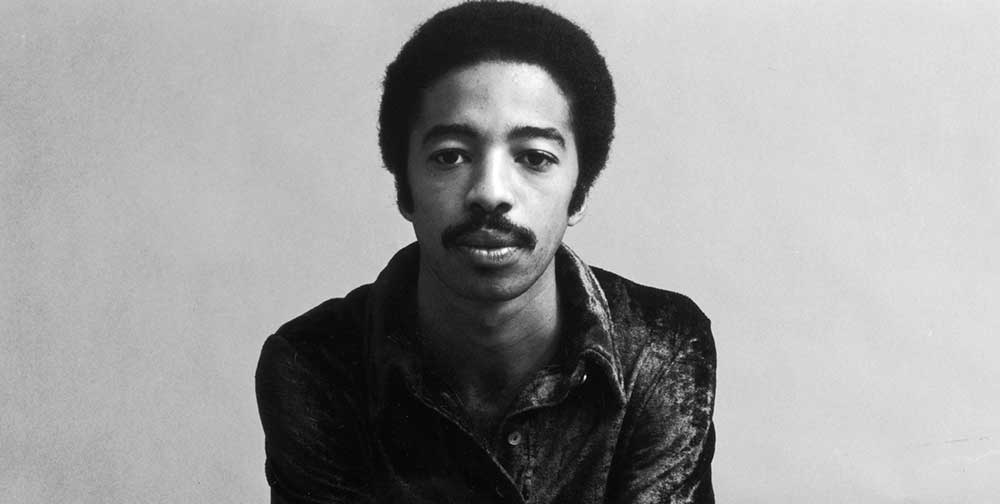Jazz lost one of its brightest and most versatile voices when pianist Geri Allen passed away in 2017. Initially influenced by Herbie Hancock, Cecil Taylor and Mary Lou Williams, she was arguably unique in being equally at home playing funky fusion with Wayne Shorter and Steve Coleman, soul with Mary Wilson of The Supremes, avant-garde with Ornette Coleman, Oliver Lake, Dewey Redman and David Murray, and vocal jazz supporting Betty Carter, Gretchen Parlato and esperanza spalding.
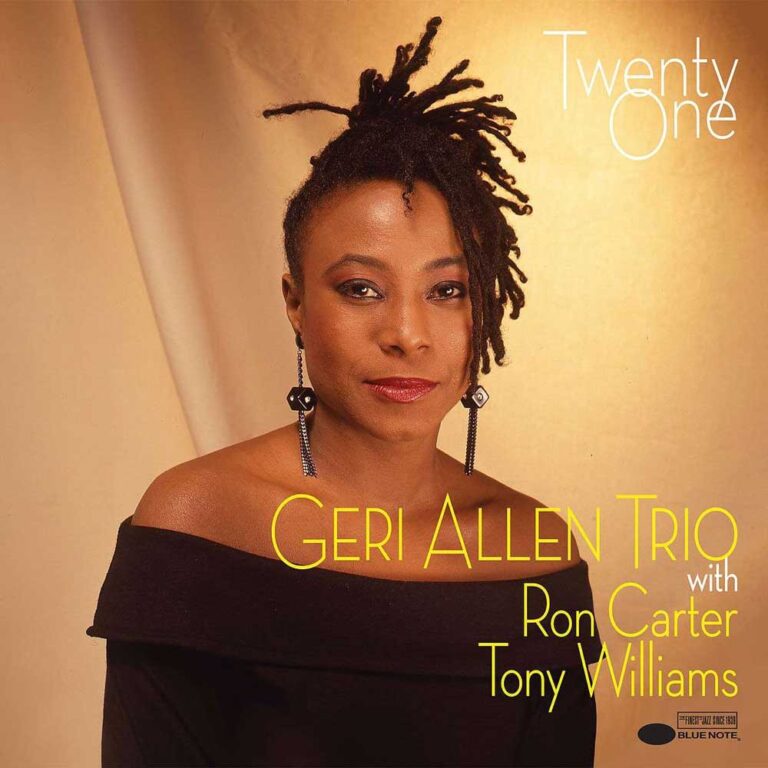
GERI ALLEN Twenty One
Available to purchase from our US store.Born in Pontiac, Michigan, she grew up with a jazz-loving father and studied music at Detroit’s Cass Tech and Washington DC’s Howard University, where she met future husband/frequent collaborator Wallace Roney. Allen then earned a master’s degree from the University of Pittsburgh (she later taught at Boston’s New England Conservatory of Music), whilst studying with pianist Kenny Barron. Moving to New York City in 1980, she became a key figure in both the M-Base and Black Rock Coalition scenes, whilst forging lasting musical connections with bassist Charlie Haden and drummer Paul Motian.
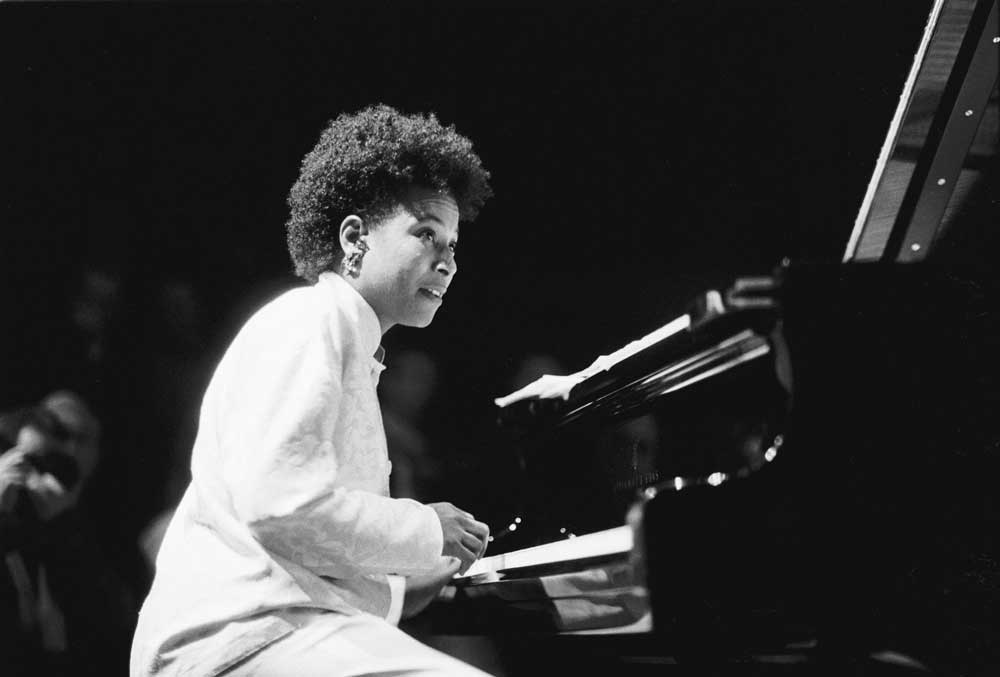
But, embedded in a rich discography, Allen’s three-album Blue Note tenure of the 1990s seems relatively unheralded (and doesn’t even get a mention in Richard Cook’s otherwise exhaustive history of the label). “Twenty One”, her third and final record for the label, gave Allen the chance to work with some key protagonists of Miles Davis’s Second Great Quintet – producer Teo Macero, drummer Tony Williams and bassist Ron Carter (Allen later said “having the chance to play with Tony and Ron was one of the greatest moments of my musical career.”).
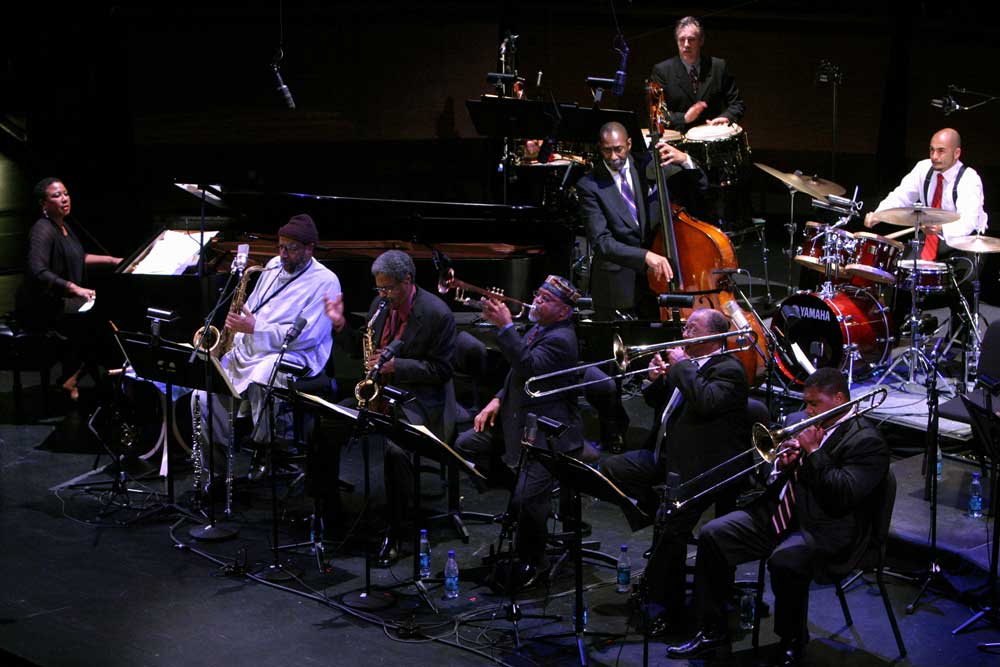
Here’s an album to play someone who proclaims a hatred of jazz. It’s energetic, challenging and uplifting, with a completely different flavour to two other famous piano trios of the 1990s, those of Brad Mehldau and Keith Jarrett. Her fine original compositions throw down the gauntlet: “RTG” explodes out of the speakers with its trademark bass vamp and funky chords, before a hard-swinging solo section underpinned by Allen and Williams’ fascinating rhythm games. “Drummer’s Song” plays havoc with 7/4 time while the tender “In The Morning” employs some of Macero’s patented, ghostly reverb. “Feed The Fire” and the solo piano piece “In The Middle” are fast and exciting – listen out for the former’s striking half-time section during Carter’s solo.
But also key to Allen’s method is her treatment of standards. She stitches together two 1947 Thelonious Monk tunes to ingenious effect – “Introspection” and “Thelonious” – the latter featuring some extraordinarily low notes from Carter, employing his famous extension. Allen once called playing Monk’s music “an education, like reading a piece of classic literature”. Elsewhere “Tea For Two” nods to Bud Powell and “A Beautiful Friendship” possibly to Nat Cole, while her take on Mary Lou Williams’ arrangement of “Lullaby Of The Leaves” features a classic Carter solo. “If I Should Lose You” and “Old Folks” are pretty and mellow, graced with Allen’s rich, unique chord voicings.
It’s hard not to compare “Twenty One” to two other classic piano trio albums also featuring Carter and Williams, both released in 1978: Carter’s “Third Plane” and McCoy Tyner’s “Supertrios”. Allen’s work sits comfortably alongside her heroes. It also showed the way forward for artists such as Julian Joseph, whose classic “Universal Traveller” shows its influence.
Allen moved on from “Twenty One” to record the excellent “The Gathering” for Verve (also produced by Macero) and influential “Grand River Crossings”, plus tens of other leader and sideperson dates including Terri Lyne Carrington’s Grammy-winning “The Mosaic Project”.
And, at the time of writing, Allen’s work seems increasingly relevant. In the current issue of DownBeat magazine, Ethan Iverson claims she is the biggest single influence on contemporary pianists, citing the work of Kris Davis, David Virelles, Craig Taborn, Vijay Iyer, Jason Moran and Marta Sanchez. It’s all there on “Twenty One”.

GERI ALLEN Twenty One
Available to purchase from our US store.Matt Phillips is a London-based writer and musician whose work has appeared in Jazzwise, Classic Pop, Record Collector and The Oldie. He’s the author of “John McLaughlin: From Miles & Mahavishnu to the 4th Dimension” and “Level 42: Every Album, Every Song”.



